The mystical part of Daytona International Speedway for Scott Russell was never the run from the chicane to the finish line. It wasn’t the International Horseshoe. It wasn’t the high-speed dogleg. For Russell, the most magical part of the Speedway was more pedestrian.
"When I drove through that tunnel something just happened," Russell remembers. "I don't know what it was, but I didn't think I could lose." And for one seven-year stretch, whenever he went through the access tunnel on the east end of the Speedway, he rarely did.
Russell came home to Daytona this year. The lanky Georgian who was always the center of attention, the face on billboards, the image on the cover of the program, made a more low-key appearance as part of a modest Superstock effort put together at the last minute by fellow former AMA Superbike champion Jamie James. James builds custom motorcycles at his shop in North Carolina and recently launched the Jamie James Yamaha Champions Riding School at Barber Motorsports Park. Russell is one of the instructors.
The team picked the Superstock class for one simple reason: no factory participation. Russell thought he could sneak in under the radar, throw down some fast laps in qualifying and maybe surprise a few people. It didn't exactly work out.
The bikes arrived at the last minute, and there was little time to make them competitive. The nearly stock motors didn't cut it against the battle-tested Suzuki support teams such as Michael Jordan's squad. The engine-control electronics-which didn't exist the last time Russell rode-were bedeviling, and the setup knowledge that may have worked back in 1992 didn't translate to 2008. He was riding next to guys he'd have lapped back in the old days, whose movements were as unpredictable as mercury on marble. His power deficit was daunting; on the banking he was a sitting duck. And he discovered all of that in the first session.
Russell is now 43, but he seems ageless. The angular features and 10,000-watt smile haven't changed. Neither has his candor, a trait that has gotten him into trouble but has made him a fan favorite. Russell came of age in an era before riders were schooled in mushmouthed clichs. What he says comes from the heart.
The first thing we wanted to know was why? Why would someone who's done so much try to relive his glory days, knowing it likely wasn't possible? "To have a good time," Russell replies, "because this is what I love to do. I missed the sport, and I love the sport. We're going to have a good time riding again."
The good times had been missing for six years. The stellar career effectively ended on the start line for the '01 Daytona 200. In his debut with the HMC Ducati team, Russell's bike stalled when the lights went green, and he was helpless as the pack came barreling up behind him. Russell was attempting to get off the track when he was struck twice, first on his right, then hard on the left by another rider.
The damage to Russell's left leg and foot was extensive. A year later he settled with Lloyd's of London on a disability insurance policy. The settlement mandated that he no longer race motorcycles professionally. "That's when it really set in. It took three years at least before I could come here and not think about how much I hated not riding," Russell remembers.
That settlement along with a number of generous contracts and bonuses left Russell set for life financially. But he was only 36 years old at the time of the accident. Not only couldn't he do what he loved best, but he had no real desire to do anything else. All his life he'd been chasing goals. What followed were years of borderline despondency.
"I was just floundering," he admits, "nothing to amount to anything. I've just been really miserable, to be honest with you. Take something away from somebody like that and that's all they know, it's kind of tough. But hey, I just dealt with it. I didn't have to go back to work; I could just do whatever I wanted to do, just play or whatever. But deep down inside I wasn't happy, not at all."
Motorcycles have always been Russell's life. When I ask him how many he owns, he smiles and answers, "Not enough." Among his many bikes, he mentions, "I've got a Limited Edition (Yamaha) R1. I've got a ZXR400 that Kawasaki (gave to me); it was a replica of the Suzuka 8-Hour bike that we won the Suzuka 8-Hour with. That was their first win. That's kind of a prize possession of mine. And then you've got the (Kawasaki ZX-7RR) World Superbike champion bike that Rob Muzzy gave me. I've got it in a glass case at home, so I do have a trophy case. Little checkered-flag tile floor and a new case with lights on it. That's my most treasured memento for sure."
The memento isn't purely physical. It evokes an era when he felt invincible, ruling the world for a brief period in the early '90s. Russell's talent was immense and he was preternaturally fast, with a fierce determination to find his way to the winner's circle.
"Just natural ability and the drive, I think," he says when asked what made him successful. "Maybe not. I don't know what order. A good team behind me and a good working relationship with the people I was with at the time.
"I had a complete understanding what [the motorcycle] was doing in those days. I mean it was like the back of my hand; it was second nature. I didn't think, I reacted. And that's how you have to be in this sport to be on your game. And when you get to that point, it's easy. I won with ease. Of course the World Superbike stuff was an uphill struggle chasing the Ducatis all those years, but the Daytona wins were almost a given. I can't explain it."
The lanky Georgian won the first of his five Daytona 200s in 1992. Riding the Muzzy Kawasaki, Russell learned something he would use to great effect for years to come.
"We're out there and we're racing, me and Doug [Polen]," Russell recalls. "Things are clicking, and I just remember following him around drafting him, thinking, 'Let's get this over with because I got this guy.' And that day was when [I thought], 'OK, I got it now. This is my track.' It's weird how that happened. But the Kawasaki was always pretty happy around this place, and we did our homework; we had a good bike. I was on my game better than ever then. That's when it started clicking."
The next year he lost to four-time 500cc World Champion Eddie Lawson by 0.05 second. That was followed by his second win in 1994.
His most famous win would come in 1995. On the second lap of the race Russell inexplicably crashed in the International Horseshoe. Then came the attack: From the back of the field he began picking off riders in bunches with help from the pace car, which he took full advantage of. It wasn't long before Russell was back in the lead and on his way to victory by over 53 seconds.
The Kawasaki years ended abruptly. Russell left the team midseason for the Suzuki 500 Grand Prix team, which was looking for a rider to replace Kevin Schwantz, who decided to retire after the fourth race of the year. The split with Rob Muzzy and Kawasaki was acrimonious, as you'd expect, with the attendant legal action, and was made more bitter by Russell's ultimate lack of success. Still, he has no regrets.
"That was the opportunity of a lifetime for me," he reminisces. "When I started racing-before I started racing-we used to rent all the GP tapes, and we watched Lawson and Spencer and all those guys battle it out and then go out and try to emulate that on the street. But I never had any aspirations or dreamed that I would be that guy. And then when that opportunity came along, boy, I had to jump at it and just see if I could cut it. It was a dream after starting racing to be out there and be a Grand Prix racer. And I always pictured myself on the Lucky Strike Suzuki, funnily enough. It was crazy.
"And then it happened-they called me. I couldn't believe it. So it was more or less a dream come true. Of course it didn't go as well as we would have liked. But I probably wasn't the model racer that I could have been. And I probably didn't eat it, drink it and sleep it like a lot of the guys did, and that showed in my performances; I suffered from it more than anything." His results in his nearly two years with World Championship 500 Grand Prix weren't stellar, but he carded a pair of thirds in 1996, which is more than most former GP competitors can say.
Russell rode a Lucky Strike Suzuki GSX-R750 superbike on Michelin tires in a one-off appearance at Daytona that year. Although the bike's speed deficit meant he shouldn't have been a factor, Russell willed himself into contention. The race's finish was the closest in the history of the 200, but he came out on the short end-American Honda's Miguel Duhamel won by 0.01 second.
Russell returned to World Superbike on the factory Yamaha team for the next two years, and he dominated Daytona during both those years riding a factory superbike that was a different animal from the factory Yamaha superbikes being raced in the States. But for the losses to Lawson and Duhamel by a combined 0.06 second, he'd have won seven 200s in a row.
Unfortunately with the Yamaha World Superbike team there was little success, much frustration and eventually another departure. Russell returned to the U.S. to lend legitimacy to the floundering Harley-Davidson team. It was a fool's errand; he was riding a motorcycle that was little changed from when it had debuted five years earlier. The payday was good, but the motorcycle wasn't. "It was near the end of it. I was still using some of the '94 chassis. It was kind of funny. Hey, I made some good relationships there. I cherish all that stuff, but the racing part of it I could have . . . hey, man, I didn't know where I was going at that time. I appreciate them giving me an opportunity to stay out there, really."
Asked how he looks back at his experience with Harley, he says with a laugh, "I try not to. They were great people to work with and really good people. I enjoyed meeting those guys and their giving me an opportunity to really be an American hero, but it didn't pan out. It was just the way it is. They were up against it and so was I."
When the Harley years ended Russell signed with the HMC Ducati team for a season that was never to be. It was the fifth brand he'd ridden for, after Kawasaki, Suzuki, Yamaha and Harley. Though his glory days came on a Kawasaki, he's more identified with Yamaha, which invites him to its Weekend of Champions at the Red Bull U.S. Grand Prix every year and is supporting his racing return, in addition to his job as an instructor at the Jamie James school.
As an observer of the racing scene, Russell thinks Rockstar Makita Suzuki's Ben Spies is "on his game. It's good to see. A young guy coming up doing his thing. You've got to appreciate the talent there and the combination of hard work. Nicky [Hayden], because they threw him in the deep end and he's still treading water over there, he's doing good. Of course [Valentino] Rossi, you know, Rossi . . . Don't know. There's a lot of guys, but those are probably the three."
The advice he'd give to young riders is "Have fun and be yourself. Whatever happens, if you hit the big time, be yourself. I didn't try to hide and be somebody I wasn't. I think people appreciate that. So just have fun with it. And normally that's when good things happen to you. So that's what I'm trying to do again, get that angle going again, see what happens."
Of hindsight, Russell says, "Well, you know, you want to say 'No regrets,' but I do have to say I wish I would have been more serious about it, because I probably would have been a multitime world champion and probably would have had an illustrious career on top of that, because I know I was as good as anybody in the world at that time. I really believe that. I kind of regret the fact that I took it with a grain of salt. It came easy, so I took it like that. I didn't have any aspiration to be that guy, and when it happened it was still me. I regret not being hard-core at it. But it was so easy and it didn't seem like I needed to. But I know if I would have done it I could have accomplished a heck of a lot more. But I can't be disappointed with what I got. I'm happy and I've got some good points on the board."
What he finds amusing is that he's more serious now that he's ever been. He's training every day and thinking about racing every day, even though he knows he won't win.
“I’m just here to have fun. But I’m serious about it. There’s no fooling around.”










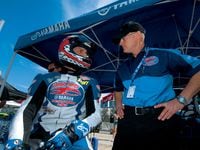
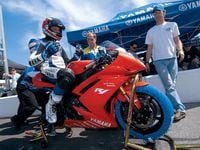
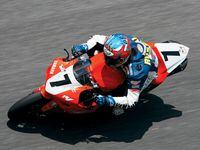
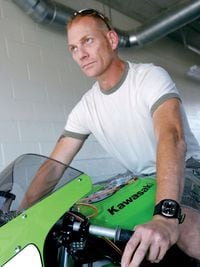
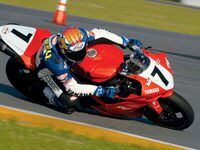
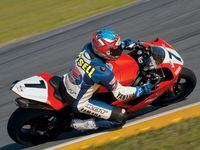
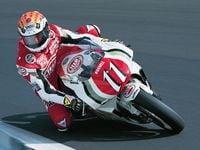
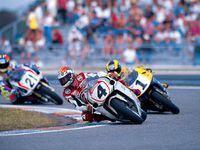
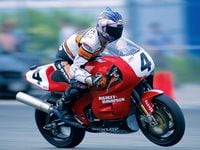
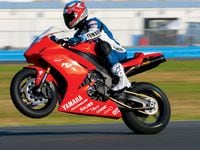
/cloudfront-us-east-1.images.arcpublishing.com/octane/REUHOJXRDBGZ5IHBYZCCBCISPA.jpg)
/cloudfront-us-east-1.images.arcpublishing.com/octane/52LGJTCKBFEHDF7S7H4CVUIMGM.jpg)
/cloudfront-us-east-1.images.arcpublishing.com/octane/YMWAIPIPSJAOXOU3QMJMGH37OM.jpg)

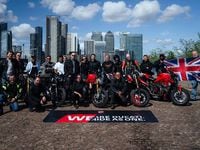
/cloudfront-us-east-1.images.arcpublishing.com/octane/EJ6KZRGAYBCVXNL2PJXL37UVWQ.jpg)
/cloudfront-us-east-1.images.arcpublishing.com/octane/AAN4TI76M5H5JMUVEIGASWXBDU.jpg)
/cloudfront-us-east-1.images.arcpublishing.com/octane/P3RXD2UCPFF37CMB7CHPVKXORY.jpg)
/cloudfront-us-east-1.images.arcpublishing.com/octane/VZEG2EJI2RDFZNHLRZMU56MD3Q.jpg)
/cloudfront-us-east-1.images.arcpublishing.com/octane/GVJQO5FFOFBWNGODOBRB4FBAW4.jpg)
/cloudfront-us-east-1.images.arcpublishing.com/octane/BIVAK2SFIBDJJM25E7I5VU2FJE.jpg)
/cloudfront-us-east-1.images.arcpublishing.com/octane/CH5VX52UG5CFHOVH5A6UYEFWWA.jpg)
/cloudfront-us-east-1.images.arcpublishing.com/octane/ZVGJNGZRU5C33N7KN23BBFKSC4.jpg)
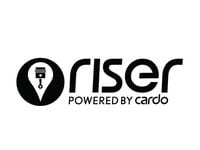
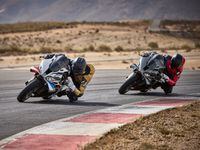
/cloudfront-us-east-1.images.arcpublishing.com/octane/CZ5OM3E43ZEXJHY7LCYXCHLIKI.jpg)
/cloudfront-us-east-1.images.arcpublishing.com/octane/DF5T4K5KPZFJXFCTGPYR77PKJM.jpg)
/cloudfront-us-east-1.images.arcpublishing.com/octane/RMCT2KVQBJHBZMRTSLOVPMOILU.jpg)
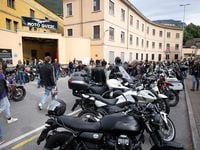
/cloudfront-us-east-1.images.arcpublishing.com/octane/K45KB2XHQVA65DX7VN4ZSMT2BI.jpg)
/cloudfront-us-east-1.images.arcpublishing.com/octane/FNHXQQ56BRD7TO4YIJ453PNG2M.jpg)
/cloudfront-us-east-1.images.arcpublishing.com/octane/OIKJC4JA3ZH7BMKUGWYKBIY5FA.jpg)
/cloudfront-us-east-1.images.arcpublishing.com/octane/MT2SAEWY6FDXFBYSLDE3AEFDTM.jpg)
/cloudfront-us-east-1.images.arcpublishing.com/octane/66UPKPYVURBPRCP5HXSN56MEMM.jpg)